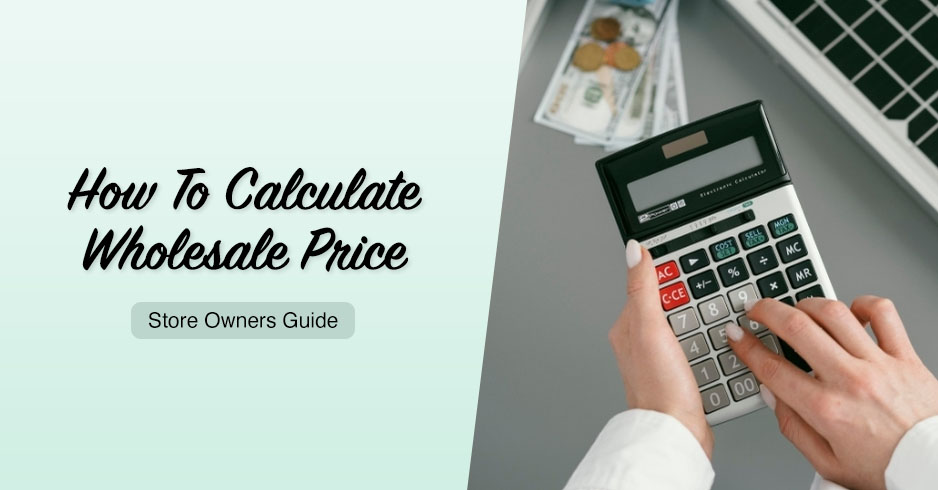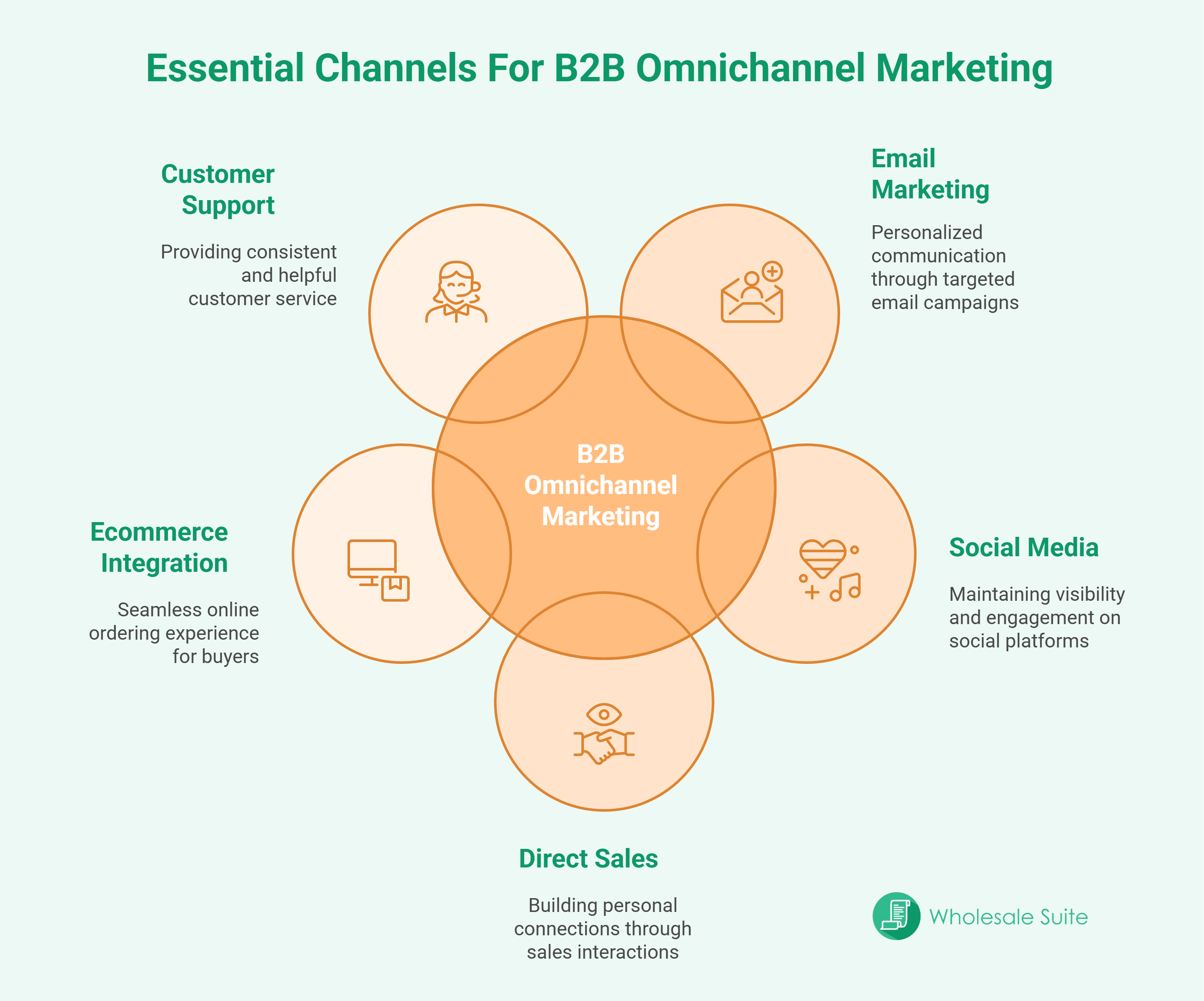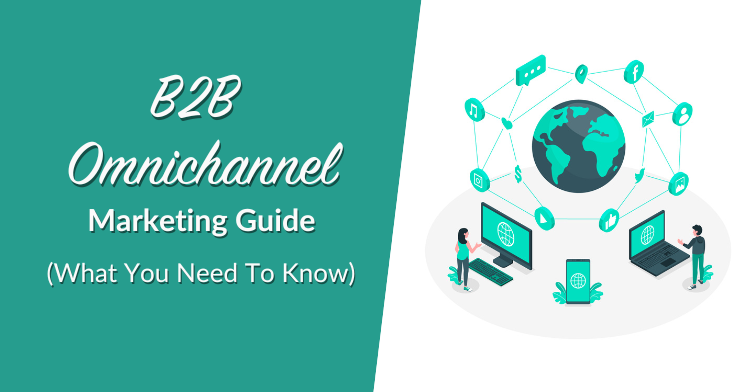
Customers do not stick to just one place when purchasing something. They browse websites, check emails, scroll through social media, and even talk to salespeople. This is where B2B omnichannel marketing becomes essential. This marketing strategy helps you reach your buyers across different marketing channels while giving them a smooth and connected customer experience.
Instead of treating each channel as separate, this approach brings everything together. With B2B omnichannel marketing, you ensure your buyers get the same message and care, no matter where they connect with you. This guide will explain how it works, why it matters, and how your wholesale business can grow by using it.
What Is B2B Omnichannel Marketing?
B2B omnichannel marketing means connecting with your buyers across different places in a connected and organized way. For wholesale businesses, this means reaching customers through emails, social media, sales calls, and your online store. However, the critical part is making sure that every message and interaction feels the same, no matter where your customer sees it. This is what gives your buyers a good customer experience.
Multichannel vs omnichannel: What’s the difference?
Many wholesale businesses use email, social media, and websites to reach their buyers. This is called multichannel marketing. But in multichannel, each channel works alone. Your email says one thing, while your social media says another. Your website has a different message, too. Buyers can get confused because there is no connection between these channels.
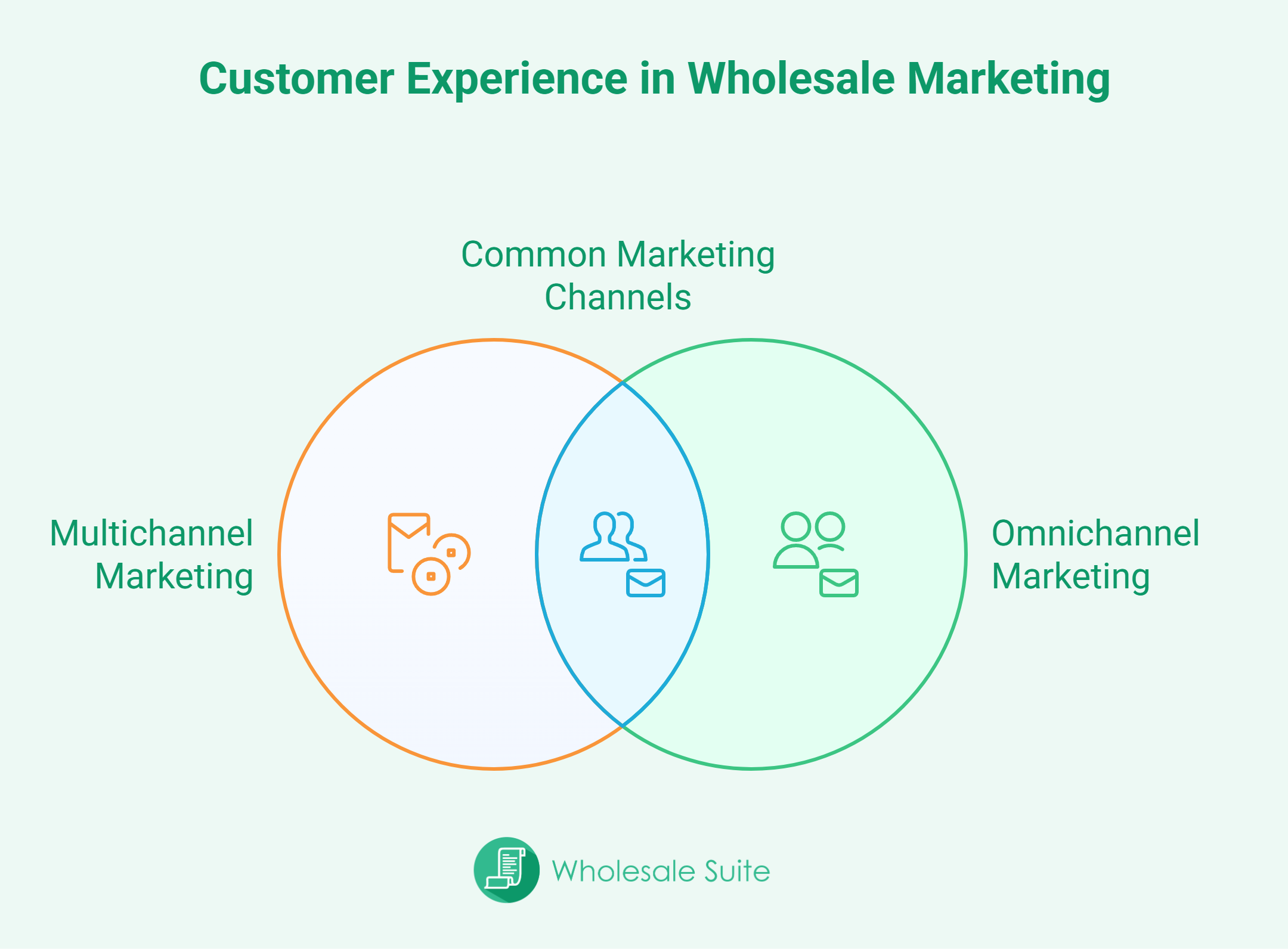
Now, here is where B2B omnichannel marketing is different. Instead of letting each channel work by itself, omnichannel ties them all together. This way, they get the same message no matter where your buyer sees you—on email, social media, or your online store. They see the same offers, and get the same care.
Think of it like this: B2B omnichannel marketing is like talking to one team that knows your full story from the start. They remember your questions. They know what you need. You never have to explain yourself twice. This makes the whole experience easier and makes you feel important.
For wholesale businesses, this is very important. Buyers want a smooth and connected customer experience. When every channel works together, your business becomes more trusted and professional. This is why B2B omnichannel marketing is a smart and helpful marketing strategy for growing your sales.
Why is B2B omnichannel marketing important?
Wholesale businesses have longer sales cycles. Unlike buying a shirt online, your buyers take more time to make a decision. They check your website, talk to salespeople, and read your emails. Sometimes, they even look at your social media to see if you are active and trustworthy.
Because of this, your marketing strategy should guide them through every step of their customer journey. B2B omnichannel marketing helps you stay connected with your buyers at every step, making it easier to build trust and close deals.
You may also read: How To Create A B2B Ecommerce Customer Journey For Your Business.
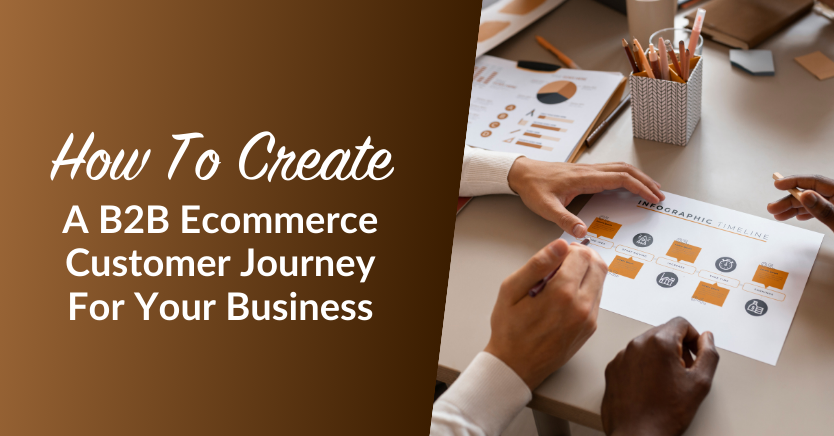
A simple example of a B2B omnichannel buyer journey
Let’s say you sell wholesale items online. A business owner finds your website through a Google search. They read a blog post and sign up for your newsletter. You send them helpful emails about your products. Later, they see your LinkedIn post about a special offer. They click the link and get in touch with your sales team for more questions. After a good conversation, they finally place an order on your ecommerce store.
From start to finish, this is how B2B omnichannel marketing is put into action.
Benefits Of Omnichannel Marketing For Wholesale Businesses
Wholesale businesses work differently from retail shops. You do not sell to random people. You build long-term relationships with buyers who expect personal attention. This is why b2b omnichannel marketing is a great marketing strategy for you. Let’s elaborate more on why:
1. Builds stronger customer relationships
When your email, social media, website, and sales team all share the same message, your buyers feel they are talking to one company, not different departments. This builds trust, and your buyers will feel more confident doing business with you. The more consistent you are, the stronger the relationship becomes. This is one of the biggest benefits of omnichannel marketing.
2. Improves buyer engagement and increases sales
If your buyers receive helpful emails, see valuable social media posts, and get fast replies from your sales team, there is a high chance that they will stay engaged in your business. A good customer experience leads to satisfied buyers who enjoy working with you. In competitive markets, where businesses thrive on digital presence, partnering with the top digital marketing agencies in LA can provide a strategic edge in reaching and engaging your target audience effectively.
3. Supports better customer retention in competitive markets
Many businesses compete for the same buyers. To stay ahead, you need to give better service. B2B omnichannel marketing helps you do this by making sure your buyers get the same good experience everywhere. When customers are happy, they stay loyal. Good customer retention is a big competitive advantage for your wholesale business.
Key Channels For B2B Omnichannel Marketing Success
A good B2B omnichannel marketing plan uses different channels to connect with buyers. But what matters most is making sure these channels work together. For wholesale businesses, here are the most important marketing channels you should focus on:
Email marketing: Building personal connections
Email is one of the best ways to talk to your buyers. You can send updates, product offers, and helpful tips. With B2B omnichannel marketing, your emails should match what buyers see on your website and social media. You can also group buyers based on their needs. This way, your emails feel more personal and helpful.
You may also read: How To Use Wholesale Email Marketing To Maximize Revenue.
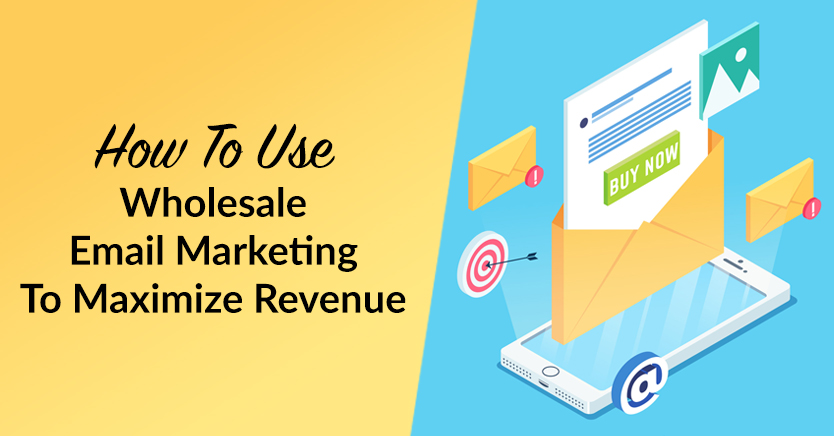
Social media: Staying visible and engaged
Many B2B buyers check LinkedIn and Facebook to learn more about a business. Social media helps you stay on their radar. You keep your message clear by sharing posts that match your email offers and website content. This is how B2B omnichannel marketing helps buyers feel connected. It also shows that your business is active and easy to reach.
Direct sales and account management: Human touch matters
Even with good online channels, B2B buyers still value real conversations. Your sales team plays a big role in B2B omnichannel marketing. When your sales reps are knowledgeable about the emails the buyer received and what they saw on social media, they can have better conversations. This makes the customer experience feel more personal and smooth.
Ecommerce platform integration: Easy ordering for buyers
For wholesale businesses, having an easy-to-use online store is a must. Your ecommerce site should work well with your other channels. When a buyer reads your email or sees a social media post, they should be able to go straight to your store and order. A connected marketing strategy like this helps avoid confusion and keeps the buyer’s journey clear.
Customer support channels: Fast and helpful replies
Good service does not stop after a sale. Your support team should also be part of your B2B omnichannel marketing. Whether a buyer sends an email, calls, or chats online, they should get the same level of help. This keeps the customer experience consistent and makes buyers feel valued even after purchase.
How To Build An Effective B2B Omnichannel Strategy
To help you connect better with your buyers and give them a smooth customer experience, here are some steps on how your wholesale businesses can do it:
1. Understand your buyers’ journey
The first step is knowing how your buyers make decisions. Where do they first hear about you? Do they check your website, read emails, or look at your social media? When do they talk to your sales team? Mapping out this path helps you see where each marketing channel fits. Knowing their customer journey lets you plan your messages better and guide them toward a sale.
2. Unify your data and tools
Providing a good customer experience will be difficult if your data is scattered. You must bring together your email lists, CRM records, website data, and social media information. This makes it easier to track buyer actions. A connected system helps you see what buyers need at each step. This also should be a key part of any strong B2B omnichannel marketing plan.
3. Align sales and marketing teams
In wholesale, sales and marketing should work together. Your marketing team brings in leads. Your sales team talks to these leads and closes deals. If they do not share information, buyers get mixed messages. By aligning these teams, you make sure your B2B omnichannel marketing stays clear and helpful.
4. Personalize communication across channels
Customers do not want to feel like just an addition to your business customers’ list. You can make them feel special by personalizing your messages. Use their name in emails. Show them products based on what they viewed. Have your sales team follow up with offers that fit their needs. This makes your marketing strategy more effective and shows you understand their needs.
5. Measure, analyze, and improve
Lastly, you need to check if your B2B omnichannel marketing is working. Track important numbers like email open rates, website visits, and repeat orders. Look at what works and what does not. Use this information to improve your plan and to deliver a better customer experience.
Common Mistakes To Avoid In B2B Omnichannel Marketing
Even if you are doing your best, it is easy to make mistakes in B2B omnichannel marketing. Here are the most common ones you should watch out for:
Treating channels as separate silos
One big mistake is letting each channel work alone. For example, your email team sends one message, but your social media says something different. Your sales team might not even know what the others are doing. This creates confusion. Buyers might wonder if your business is even organized.
With B2B omnichannel marketing, you must ensure all your marketing channels work together. Every message should support the same goal. This way, buyers get a clear and connected customer experience.
Relying too much on automation
Automation can help you save time. But using it too much can make your messages feel cold and robotic. In wholesale, relationships matter. Buyers want to feel that a real person is helping them.
A good B2B omnichannel marketing plan uses automation wisely. You can automate small tasks like sending order updates. But personal conversations, like answering buyer questions, should still be handled by your sales team. This keeps the customer experience human and friendly.
Ignoring the post-sale experience
Some businesses focus too much on attracting new buyers and forget that keeping existing customers is just as important. After a sale, you should still stay connected. Send follow-up emails, offer helpful support, and share product tips on social media.
B2B omnichannel marketing is not just about getting the first order. It is about providing a good customer experience from start to finish, which helps with customer retention and keeps customers coming back.
How Wholesale Suite And AdTribes Helps You Build A B2B Omnichannel Strategy
Managing buyers across many channels can feel overwhelming for wholesale businesses, especially those using WooCommerce. This is where Wholesale Suite becomes a valuable tool. It brings everything you need into one place, helping you build a strong B2B omnichannel marketing plan with less effort.
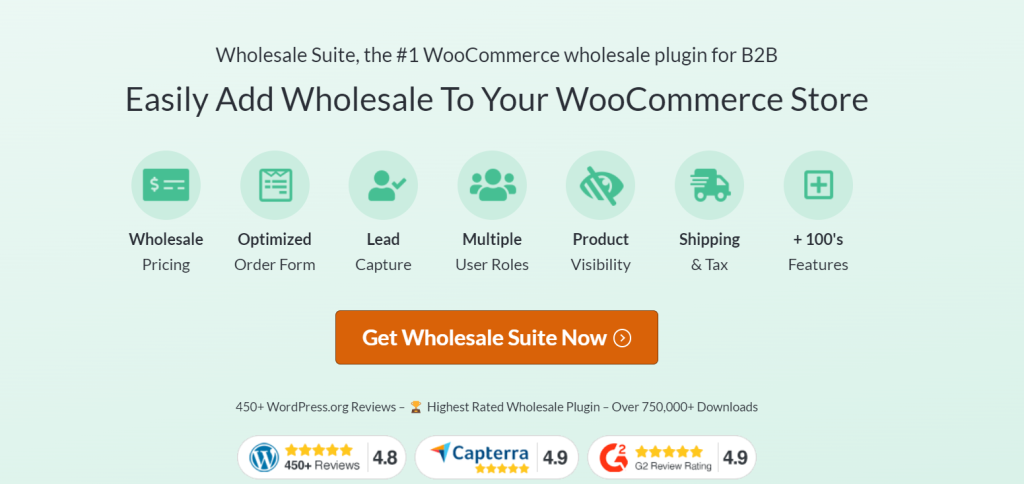
With Wholesale Prices Premium, you can give consistent pricing across your wholesale store. Wholesale Order Form makes online buying fast and easy for your customers. Wholesale Payments ensures a simple and secure checkout process. Finally, Wholesale Lead Capture helps turn interested visitors into loyal customers by capturing the right leads for your wholesale business.
AdTribes: Expanding your reach across channels
While Wholesale Suite focuses on your store’s internal systems, AdTribes helps you reach more buyers by managing your product feeds. It connects your WooCommerce store to platforms like Google Shopping, Facebook, and other marketplaces. This makes sure your products are visible in the right places and have correct pricing and stock info. By syncing your product data across these channels, AdTribes supports your B2B omnichannel marketing strategy by expanding your reach while keeping everything accurate and up-to-date.
You may also read about, “Wholesale Price + Product Feeds: A Combination For WooCommerce Growth.“

All these tools work together to support your B2B omnichannel marketing goals. Wholesale Suite manages your wholesale pricing, orders, payments, and leads. AdTribes helps you spread this information across key marketing channels where your buyers are looking. Together, they make sure your buyers get a connected customer experience from the first visit to the final sale. This is how you build stronger relationships, improve customer retention, and stay ahead of your competitors.
Frequently Asked Questions
What is the omnichannel strategy framework?
An omnichannel strategy framework is a simple plan for connecting with buyers across different channels. It includes knowing your customer journey, linking all your marketing channels, and sending the same message everywhere. It also involves tracking data to see what works to improve the customer experience.
What is a strong omnichannel strategy?
A strong omnichannel marketing strategy makes every part of your business work together. Your emails, social media, website, sales team, and support should all be working together to give the same message across different channels.
Is omnichannel marketing the same as integrated marketing?
They are similar, but not the same. Integrated marketing means making your message look and sound the same in all your campaigns. Omnichannel marketing goes further. It focuses on giving the buyer a smooth experience across every channel and step of their journey. It is not just about matching colors or words, but also about making every interaction feel connected.
Key Takeaways
B2B omnichannel marketing is more than using email, social media, and a website. It is about ensuring that all these marketing channels work together to build trust and give your buyers a smooth and clear customer experience.
In this article, we discussed how it works, why it matters, and how using it can grow your wholesale business:
- What is B2B omnichannel marketing
- Benefits of omnichannel marketing
- Key channels for B2B omnichannel marketing
- How to build an effective B2B omnichannel strategy
- Common mistakes to avoid
- Wholesale Suite and AdTribes
If you are serious about growing your wholesale business, now is the time to build your own B2B omnichannel marketing plan. Start by understanding your buyers, connecting your channels, and giving them the same good experience everywhere. This will give you a strong competitive advantage, help with customer retention, and make your business stand out in a crowded market.
Do you have questions about omnichannel marketing? Let us know in the comments!

